The Indian intelligentsia has reacted sharply to the recent happenings. On one hand, Booker Prize winning author Salman Rushdie was insulted disgracefully by being forced to decline his invitation to the Kolkata Book Fair. Simultaneously, reputed film maker Kamal Haasan has been facing an unnecessary row over his latest film Vishwaroop. Film makers, artists and journalists have taken a staunch stand on this issue stamping it as Cultural Terrorism. But Vishwaroop isn’t the first time a film has faced needless objections. Koimoi brings to you the films which have faced similar turmoil with their release because looks like our democracy does not entitle us to Freedom of expression completely.
Rang De Basanti (2006)
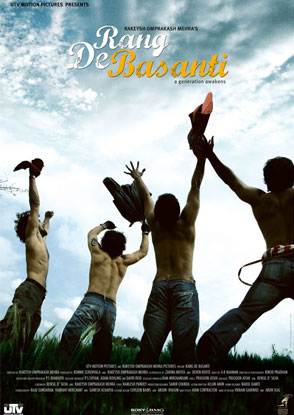
The central plot of the film questioned the efficiency of MiG 21 fighter jets of the Indian Air Force citing hints of the MiG 21s have a long standing history of bloodshed by accidents. The Ministry of Defense raised queries about it which led to a debacle. Rakyesh Omprakash Mehra and Aamir Khan had to arrange for a special screening with the Defense Ministry and get a clearance from them before the Censor Board could allow its release. Soon after, the movie also faced objections from Maneka Gandhi, a famous Animal Rights Activist who questioned the presence of a banned horse race scene of Nihang Sikh community. Mehra had to decide to delete the twenty second horse race clip in order to avoid any further delay in the release of his film. Though the makers of Rang De Basanti dealt with it quite dignifiedly, the harassment was absolutely uncalled for.
Fanaa (2006)
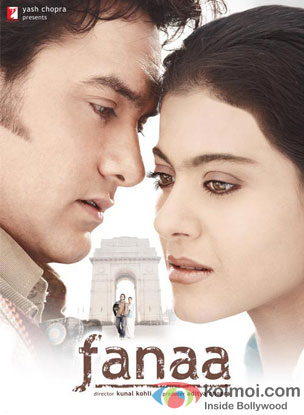
Aamir Khan vocally supported social activist Medha Patkar and Booker Winning Author Arundhati Roy in their agitation for the Narmada Bachao Andolan demanding better rehabilitation of the displaced population of villages. Yash Raj Films’ Fanaa faced an unofficial ban in Gujrat which showcased immense intolerance and lack of co-operation from the BJP led state Government. This aggravated after Aamir Khan refused to apologize for his statements very convincingly stating that he is conveying the views of the Supreme Court itself. YRF was refused release in most multiplexes and single screens.
Bombay (1995)
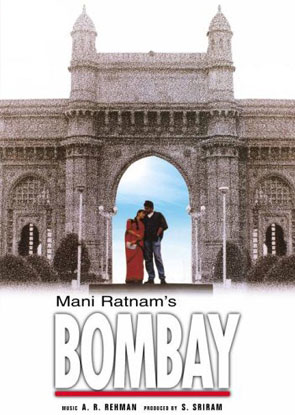
Directed by Mani Ratnam, the film faced severe repercussions for depicting a subject as volatile as the 1992-93 Bombay Riots following the demolition of the Babri Masjid. Shiv Sena took it personally and ensured the film faces immense troubles despite which it went on to win the National Award that year for Best Feature Film on National Integration.
Fire (1996)
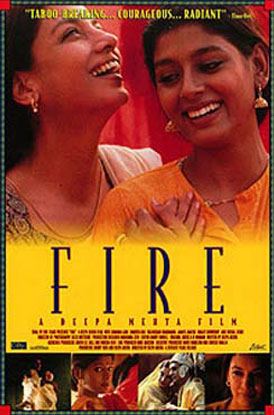
Going back to the time when homosexuality was still a taboo, Article 377 ensured criminalization of homosexual relationships and the LGBT group was still in their stages of empowerment, Deepa Mehta’s Fire showed a bold scene of two married women kissing. The scene led to an array of protests leading to the shut down of the film in cities like Pune, Mumbai, Surat, Lucknow, Kanpur, Delhi and so on. A certain minister issued a public statement congratulating vandalizers on their job and stating that Homosexuality is a forbidden theme which will corrupt Indian culture.
Water (2005)
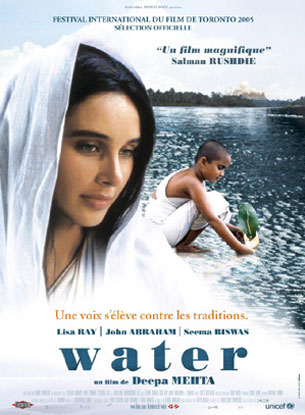
Deepa Mehta almost became a scandalous name post the objections over her liberal themed films. This film dealt with the plight of Hindu widows in the early part on 20th century and focused on themes like misogyny as well. The shooting of the film began in Benaras but was stalled soon after because of violent protests from the right wing organizations and the local Government unable to lend security to the film’s crew. Then the film was shot vastly in Sri Lanka and was later released in India amidst greater controversies.
Bandit Queen (1994)
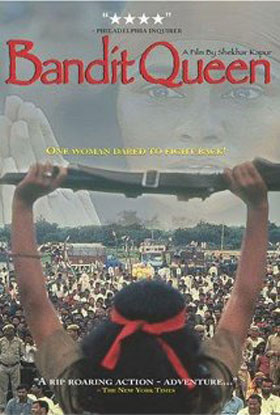
The biopic directed by Shekhar Kapur starring Seema Biswas in the role of famous dacoit Phoolan Devi faced immense criticisms, mostly from the Feminists vehemently objecting to the film stating that the treatment of the brutal rape scenes in the film have been executed from a very male centric perspective.
Parzania (2007)
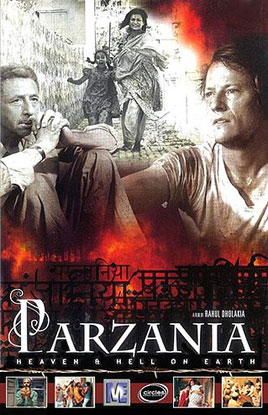
Based on the story of Parzan Pithawala, the 10 year old Parsi Boy who went missing after the horrendous Godhra Riots in Gujrat in 2002, the film was banned in Gujrat. The state Government claimed to protect their people from bringing back the haunting memories of the riots. However, the Indian critics simply pointed out that Dholakia deals with the theme with a humanitarian touch and not judgmental, and hence the ban is uncalled for.
Firaaq (2008)
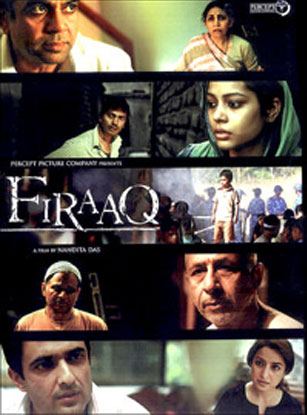
Directed by the talented actress Nandita Das, the film focuses on the aftermath of the Godhra Riots. The film again faced the similar fate as that of Parzania, yet went on to win two National Awards.
Aarakshan (2011)
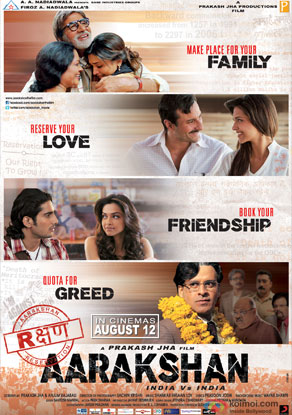
Prakash Jha’s controversial film about positive discrimination in India led to a mass scale upheaval against it , resulting in its ban in many states including Uttar Pradesh, Punjab and Andhra Pradesh citing reasons of anarchical situations in the regions.
Aandhi (1975)
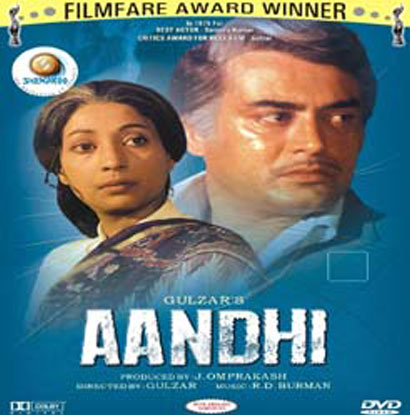
It would be incorrect to assume that only right wing parties object to film’s themes. The very secular and democratic Congress raised a massive objection over Suchitra Sen and Sanjeev Kumar’s Aandhi. The story of the film was apparently loosely based on the life of former Prime Minister Indira Gandhi. The movie’s release was strained badly and was later released after Congress lost the 1977 General Elections.
These are merely a few of the films which have faced these issues. There have been many others be it Karan Johar’s My Name is Khan which led to a rather public spat between Shiv Sena and Shah Rukh Khan or Chakravyuh’s song which hurt the sentiments of important Indian entrepreneurs. If one unbiased-ly sits back and watches these films, they will find it to be highly educational thematically and mostly shun the objectionable views as completely baseless. It is sad to see that India which colorfully boasts about our democracy is so hypocritical when it comes to protecting our rights to Freedom of Expression. While it is indeed the responsibility of the film makers to respect the cultural diversity of our country and not hurt sentiments, it is equally important to protest against meaningless and uniformed harassment that most film makers like Kamal Haasan face needlessly.



 Follow Us
Follow Us


![Arbaaz Khan & Wife Sshura’s Clinic Visit Turns ‘Pregnancy/Baby Bump’ Spotting Race – But ‘Arhaan Ki Jaydaad Bant Gayi’ Was Lowest This Could Get! [Opinion] Arbaaz Khan & Wife Sshura Khan's Clinic Visiy Turns 'Pregnancy & Baby Bump' Spotting Race](https://www.koimoi.com/wp-content/new-galleries/2025/04/arbaaz-khan-sshura-khan-clinic-pregnancy-baby-bump-01-324x160.jpg)



